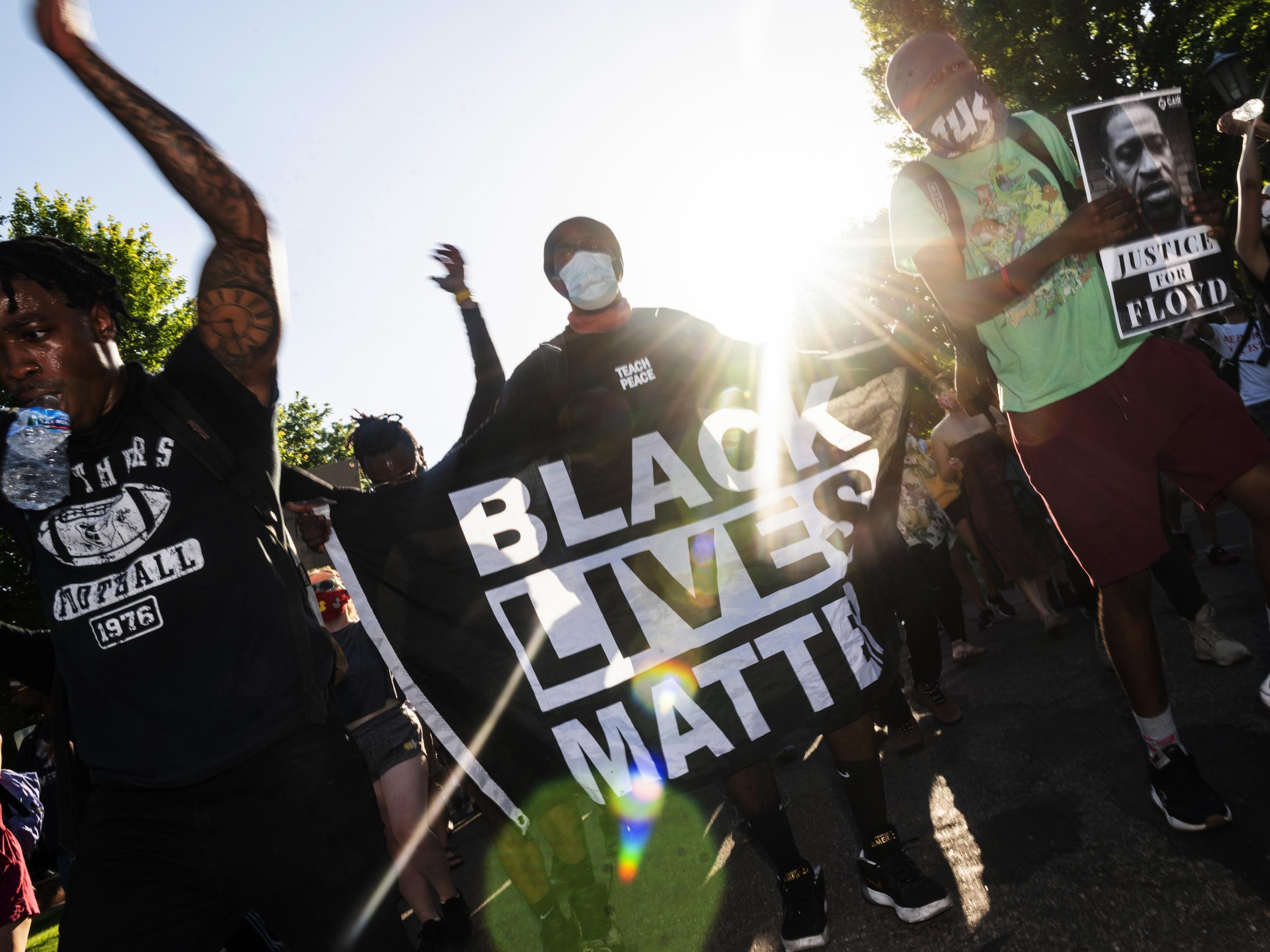The ongoing US protests will affect the world in more ways than you might think
We can only hope for reform as quickly as can be done after such tragic events – but demonstrations sparking a reaction from government will also bring economic issues, writes Hamish McRae


The anger in the United States is first and foremost a story about people. Alas, politicians were always going to get involved – many, like Donald Trump, not in the way they should.
For anyone who knows, likes and respects the US, this is all deeply saddening. The beautiful Episcopal Church of St John, just across the road from the White House, is not an appropriate backcloth for political statements.
I recall going there for Choral Holy Eucharist one Sunday early in the Trump presidency and was much impressed by the warm and welcoming way we visitors and the mixed congregation were received. This is a special church. It is not a place for politics, as Bishop Mariann Edgar Budde has made so clear.
Troubling and saddening, but also widespread. So, if you can forgive me looking at something less important than the human toll – will the economy eventually become part of this? The conventional answer is no. The financial markets, in their characteristic amoral way have been broadly unfazed. The dollar was off a bit but equity markets have shrugged things off. If you look back at previous periods of social unrest, the Los Angeles riots of 1992 for example, the long-term impact has been small.
There are however two reasons why this muted market reaction may underestimate the damage. This comes at a dreadful moment for the economy. And it also involves government attention at every level: federal, state, municipal.
American consumers need a boost to their confidence and the American economy needs consumers. The shopping malls were just beginning to recover their footings. The motor dealers were getting back to selling cars. Restaurants and bars are reopening. But shops and bars reopening is one thing. Whether people feel like going out is another.
The frustration that many people feel as a result of being locked down has to be set against the fear of heading out when you don’t need to. News concentrates on the violence, rather than the vast majority of peaceful protest. But ask yourself this: does a series of news reports on television showing smashed shop windows make you more or less likely to head downtown?
All economics is at the margin. At the margin this slows the recovery.
The other concern, the diversion of resources, may turn out to be even more serious. People tend to assume that governments have huge resources and in one sense they do. Only a national government can pump billions into the economy. But in practical terms, the resources are limited both in managerial capacity and in funding. Government, at every level, is people – often a handful of individuals trying to make the right decisions as they respond to events.
If those people are having to spend their time and public funds in responding to one emergency, that is time and money that is drawn from responding to another one. That is not to undermine the merits of one situation over another.
Right now, government at every level – and not just in the US, across the world – is under great strain. To say that is not to try to defend political leaders who appear to be making poor decisions, or the justifiable anger on the streets. It is simply to point out that they are having to cope with something that is quite outside their experience. State governors in particular, and their staff, have had a lot of problems on their hands. Now several have another set of troubles on top.
We do not know what will happen in the weeks ahead. It may be that present tensions will ease. In the longer term, US society as a whole will surely learn from the dreadful event that triggered this crisis, and start to tackle the underlying troubles than have sparked the disturbances of the past few days. On a long view the vibrancy of the US economy is intact and there is no reason why it should not resume solid growth that can generate the wealth that can be deployed to attack social ills.
But in the short term the US, and indeed the world, needs an economic recovery. That recovery was just starting to stir. Now it has been damaged and will take a bit longer – we don’t know how much longer – to gather pace than it otherwise would.
Join our commenting forum
Join thought-provoking conversations, follow other Independent readers and see their replies
Comments